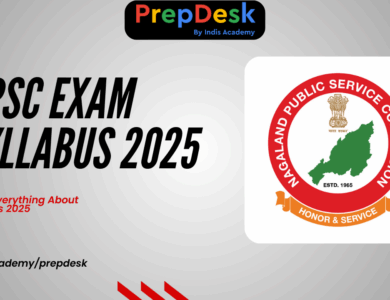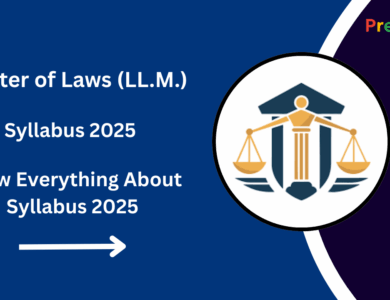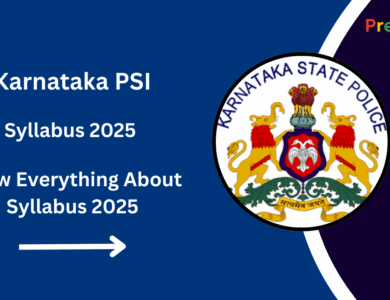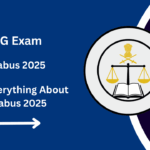NEST 2025 Syllabus: Detailed Subject-Wise Guide for Physics, Chemistry, Biology & Mathematics
Explore the comprehensive NEST 2025 syllabus, covering Physics, Chemistry, Biology, and Mathematics. Aligned with NCERT Class 11 & 12 curricula, this guide provides topic-wise breakdowns, exam patterns, and preparation tips for aspiring students aiming for admission to NISER and UM-DAE CEBS.
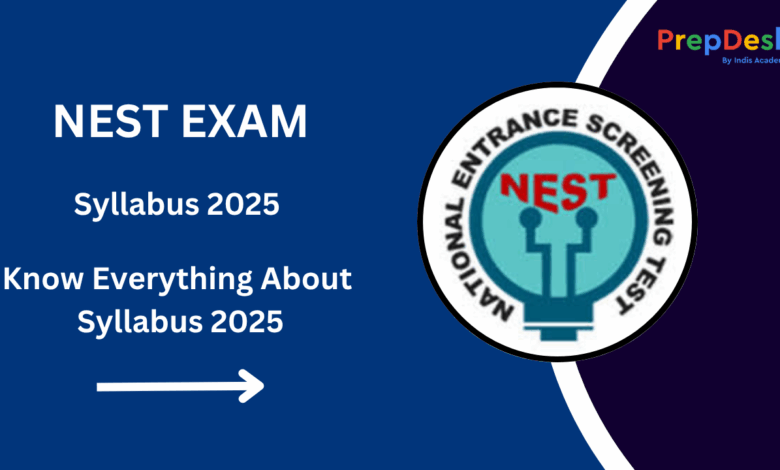
The National Entrance Screening Test (NEST) is a national-level entrance exam for admission into the 5-year Integrated MSc program in Biology, Chemistry, Mathematics, and Physics offered by NISER Bhubaneswar and UM–DAE CEBS Mumbai. This guide includes a subject-wise breakdown of the NEST syllabus 2025, marks distribution, PDF download link, recommended books, preparation strategy, and specialization options after the course.
NEST 2025 Exam Overview
| Feature | Details |
|---|---|
| Exam Name | National Entrance Screening Test (NEST) |
| Conducting Body | NISER & UM–DAE CEBS |
| Program Offered | Integrated MSc (5 Years) |
| Mode of Exam | Online (Computer-Based Test) |
| Duration | 3 hours 30 minutes |
| Total Marks | 200 |
| Subjects | Biology, Chemistry, Mathematics, Physics |
| Best 3 Sections Counted | Yes |
| Negative Marking | Yes (except MSQs) |
Subject-Wise NEST Syllabus 2025
Biology
| Units | Topics |
|---|---|
| Diversity in Living Organisms | Classification, Kingdoms, Hierarchies |
| Cell Structure & Function | Cell theory, Prokaryotic/Eukaryotic cells, Organelles, Cell division |
| Structural Organisation | Animal tissues, Plant anatomy |
| Plant Physiology | Photosynthesis, Respiration, Transpiration, Growth hormones |
| Human Physiology | Digestive, Respiratory, Circulatory, Nervous systems |
| Reproduction | Human & plant reproduction, Menstrual cycle, Contraceptives |
| Genetics & Evolution | Mendelian laws, DNA, Evolution theories |
| Ecology & Environment | Food chain, Biodiversity, Pollution, Ecosystems |
| Biotechnology | rDNA technology, Applications, Cloning |
| Biology in Human Welfare | Vaccination, Microbes, Industrial uses |
Chemistry
| Units | Topics |
|---|---|
| Basic Concepts | Mole concept, Atomic mass, Empirical formula |
| Atomic Structure | Bohr’s model, Quantum numbers, Electron configuration |
| Chemical Bonding | Ionic, Covalent, VSEPR theory, Hybridization |
| States of Matter | Gases, Liquids, Real gas behavior |
| Thermodynamics | First law, Enthalpy, Entropy, Gibbs energy |
| Equilibrium | Chemical & Ionic, pH, Buffer solutions |
| Redox Reactions | Oxidation number, Balancing equations |
| Electrochemistry | Cell potential, Nernst equation |
| Kinetics | Rate laws, Activation energy |
| Surface Chemistry | Adsorption, Colloids, Catalysts |
| Organic Chemistry | Hydrocarbons, Isomerism, Mechanisms |
| Coordination Compounds | Isomerism, Bonding theories |
| Biomolecules | Proteins, Carbohydrates, Nucleic acids |
| Polymers & Environment | Synthetic polymers, Green chemistry |
Mathematics
| Units | Topics |
|---|---|
| Sets, Relations & Functions | Venn diagrams, Domain-range, Function types |
| Algebra | Complex numbers, Quadratic equations, Sequences |
| Trigonometry | Identities, Inverse functions, Applications |
| Coordinate Geometry | Lines, Circles, Conics |
| Calculus | Limits, Derivatives, Integrals |
| Vectors & 3D Geometry | Dot/Cross product, Planes |
| Probability & Statistics | Bayes’ theorem, Mean, Variance |
| Linear Programming | Inequalities, Optimization |
| Mathematical Reasoning | Statements, Truth tables |
Physics
| Units | Topics |
|---|---|
| Measurements | Units, Errors, Dimensional analysis |
| Kinematics | Linear and projectile motion |
| Laws of Motion | Newton’s laws, Friction |
| Work, Power, Energy | Conservation laws |
| Gravitation | Kepler’s laws, Escape velocity |
| Thermodynamics | Laws, Heat, Entropy |
| Oscillations & Waves | SHM, Sound waves, Doppler effect |
| Electrostatics | Electric field, Capacitance |
| Current Electricity | Ohm’s law, Circuits |
| Magnetism | Bar magnets, Magnetic effects of current |
| Electromagnetic Induction | Faraday’s law, Lenz’s law |
| Optics | Lenses, Interference, Diffraction |
| Modern Physics | Photoelectric effect, Radioactivity |
| Semiconductors | Diodes, Transistors, Logic gates |
Syllabus PDF Download
You can download the official NEST syllabus PDF from the link below:
Recommended Books for NEST 2025
| Subject | Book | Author / Publisher |
|---|---|---|
| Biology | NCERT Biology (XI–XII) | NCERT |
| Trueman’s Biology | K.N. Bhatia | |
| Chemistry | NCERT Chemistry (XI–XII) | NCERT |
| Physical Chemistry | O.P. Tandon | |
| Mathematics | NCERT Mathematics (XI–XII) | NCERT |
| RD Sharma / ML Khanna | Various | |
| Physics | Concepts of Physics | H.C. Verma |
| Problems in Physics | I.E. Irodov |
Preparation Tips
| Strategy | Details |
|---|---|
| Start Early | Begin preparation at least 8–10 months in advance |
| Master NCERT First | Build concept clarity with Class XI–XII NCERT books |
| Practice MSQs First | Focus on Multiple Select Questions – no negative marking |
| Attempt Mocks Regularly | Simulate real exam, improve time management |
| Analyze Weak Areas | After each mock test, identify and improve weak topics |
| Time Management | Allocate specific time for each subject in your daily schedule |
| Revise Weekly | Keep a separate notebook for short notes & revision |
Specialization & Career Scope After NEST
| Field | Career Opportunities |
|---|---|
| Biology | Research, Genetics, Pharma, Bioinformatics |
| Chemistry | Analytical Chemistry, Chemical Engineering, R&D |
| Physics | Astrophysics, Nuclear Physics, Quantum Research |
| Mathematics | Actuarial Science, Data Science, Cryptography |
| Post-MSc | PhD in IITs, IISc, ISRO, Foreign Universities |
Most Important Points for NEST 2025 Syllabus (At a Glance)
-
Best 3 Subjects Count – Only your best 3 sections out of Biology, Chemistry, Physics, and Maths are considered for merit.
-
NCERT-Based – Entire syllabus is based on Class 11 & 12 NCERT books.
-
Concept-Oriented Questions – Focus on application & logic, not rote learning.
-
MSQs & Negative Marking – Multiple Select Questions are included; most MCQs have negative marking.
-
High-Weight Topics:
-
Biology: Genetics, Ecology, Human Physiology
-
Chemistry: Chemical Bonding, Organic Reactions
-
Physics: Mechanics, Electromagnetism
-
Maths: Calculus, Probability
-
-
Focus on Strengths – Practice and perfect your top 3 subjects.
-
Time Management is Key – 3.5 hours for 4 sections. Don’t waste time on weaker areas.
-
Solve Mock Tests & PYQs – Regularly solve mocks & previous year papers.
-
Revise Formulas & Diagrams – Especially in Physics, Chemistry, and Biology.
-
Use Recommended Books – Stick to NCERT + reference books like HC Verma, OP Tandon, Trueman’s Biology.
Conclusion
The NEST syllabus 2025 demands strong fundamentals in Class XI and XII science subjects. With focused preparation and strategic planning, students can secure a place in elite research institutions like NISER and CEBS. Download the syllabus PDF, follow the recommended books, and practice with mock papers to maximize your score.

